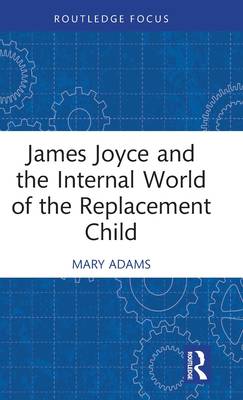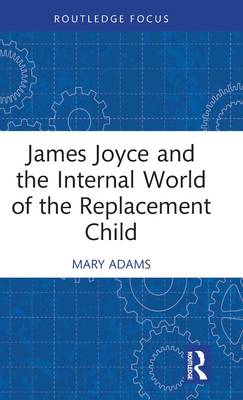
- Retrait gratuit dans votre magasin Club
- 7.000.000 titres dans notre catalogue
- Payer en toute sécurité
- Toujours un magasin près de chez vous
- Retrait gratuit dans votre magasin Club
- 7.000.0000 titres dans notre catalogue
- Payer en toute sécurité
- Toujours un magasin près de chez vous
Description
This book is an exploration of the internal world of James Joyce with particular emphasis on his being born into his parents' grief at the loss of their firstborn son, offering a new perspective on his emotional difficulties.
Mary Adams links Joyce's profound sense of guilt and abandonment with the trauma of being a 'replacement child' and compares his experience with that of two psychoanalytic cases, as well as with Freud and other well-known figures who were replacement children. Issues such as survivor guilt, sibling rivalry, the 'illegitimate' replacement son, and the 'dead mother' syndrome are discussed. Joyce is seen as maturing from a paranoid, fearful state through his writing, his intelligence, his humour and his sublime poetic sensibility. By escaping the oppressive aspects of life in Dublin, in exile he could find greater emotional freedom and a new sense of belonging. A quality of claustrophobic intrusive identification in Ulysses contrasts strikingly with a new levity, imaginative identification, intimacy and compassion in Finnegans Wake. James Joyce and the Internal World of the Replacement Child highlights the concept of the replacement child and the impact this can have on a whole family.
The book will be of interest to psychoanalysts, psychoanalytic psychotherapists and child psychotherapists as well as students of English literature, psychoanalytic studies and readers interested in James Joyce.
Readers can find an additional piece by the author online at http: //replacementchildforum.com/a-white-bird-trapped-inside-me-beating-scared-wings/
Spécifications
Parties prenantes
- Auteur(s) :
- Editeur:
Contenu
- Nombre de pages :
- 128
- Langue:
- Anglais
- Collection :
Caractéristiques
- EAN:
- 9781032314754
- Date de parution :
- 27-06-22
- Format:
- Livre relié
- Format numérique:
- Genaaid
- Dimensions :
- 140 mm x 216 mm
- Poids :
- 317 g

Les avis
Nous publions uniquement les avis qui respectent les conditions requises. Consultez nos conditions pour les avis.






